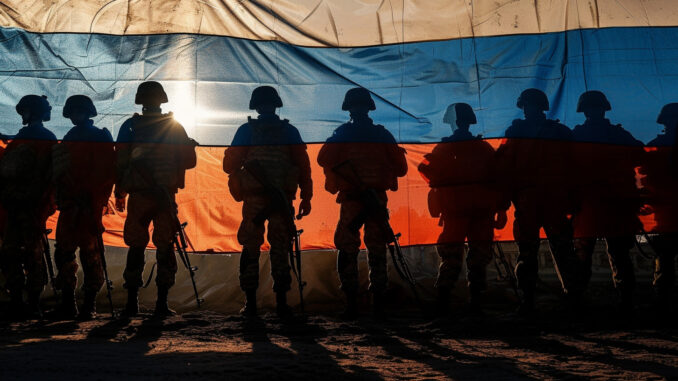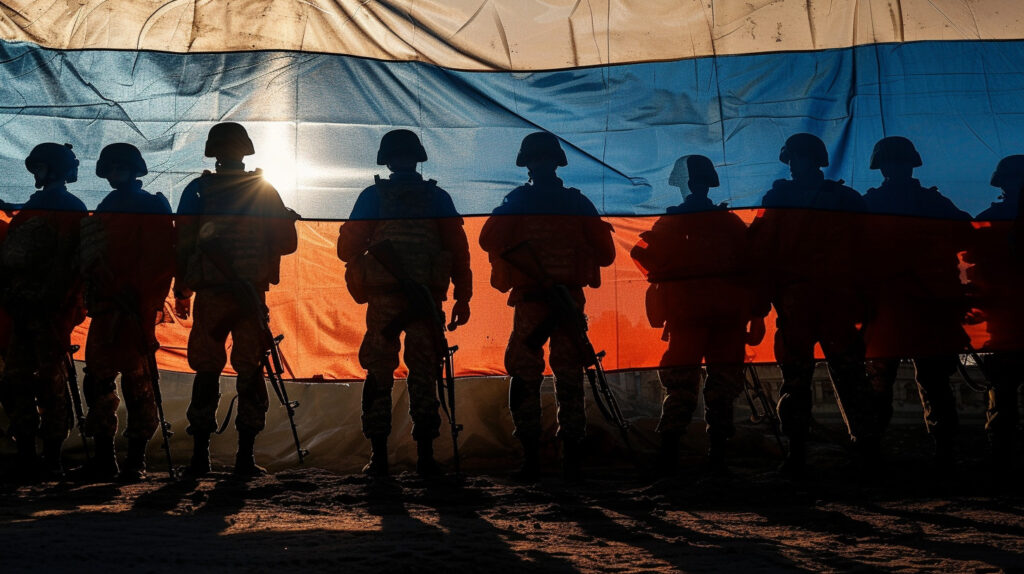
Faced with a shortage of Russian volunteers, Russia is recruiting soldiers from abroad, offering attractive sums despite the high risks.
Faced with falling public support for its war in Ukraine and a growing shortage of volunteers, Russia has begun recruiting soldiers from abroad. Recruits come mainly from rural areas and poor countries in Central Asia and Africa, lured by tempting financial promises and residence permits in Russia. However, the high mortality rate among these soldiers poses a growing challenge for the Kremlin, which could run out of fighters by 2026.
Domestic mobilisation in decline: reasons and consequences
The conflict in Ukraine, which has now been going on for more than two years, has profoundly changed public perception in Russia. Initially, the Kremlin was able to justify the invasion by describing it as a mission to ‘recover’ part of the former Soviet empire. However, as the months went by, the heavy loss of life eroded popular support. Russian mothers, in particular, expressed outrage at the use of conscripts in a war that, according to Russian law, should only involve professional soldiers. These young men, often inexperienced, find themselves on the front line of a deadly conflict that has only increased in intensity.
To overcome this resistance, the Russian government has opted for a financial solution: offering substantial bonuses to soldiers who agree to go to Ukraine. This strategy, although temporarily effective, has shown its limits. In the big cities, men of fighting age often have the financial means to flee the country to escape the recruiters. Those with the technical or professional skills sought by the state are also less inclined to let themselves be recruited. This brain drain has forced military recruiters to turn to rural areas, where poverty makes the money on offer more attractive.
The sum of 20,000 dollars (around 18,500 euros) offered to recruits represented a fortune for men from these regions. For many, this money could change the lives of their families, even if it meant risking their lives on the Ukrainian battlefield. However, as the war intensified and casualties mounted, even these sums were no longer enough to convince men to enlist.
Foreign recruitment: a double-edged sword
Faced with the exhaustion of Russian volunteers, Moscow has begun to look for recruits outside its borders. The countries of Central Asia, former Soviet states, proved to be particularly promising recruiting grounds. Widespread poverty and a command of the Russian language attracted men in search of better economic prospects. As well as money, Russia promises them residence permits, an offer that many find hard to refuse. However, these recruits know that their chances of survival are slim, especially in 2024, when the conflict has become even more deadly.
At the same time, Russia also recruited soldiers in Africa and Asia, often through local brokers. These recruiters offered tempting contracts to men looking for work, without necessarily informing local governments of the true nature of the commitment. But this tactic quickly gave rise to political tensions in the countries concerned, particularly when the loss of life began to mount. Local governments, under pressure from their populations, then began to ban Russian recruitment, despite attempts by Moscow to bribe them.

The future of Russian recruitment: a growing challenge
Despite these efforts, the Kremlin is facing a major challenge: the pool of available soldiers is dwindling fast. Russian military personnel experts estimate that, if the situation continues as it is, Russia could run out of combatants by 2026. This prospect worries not only military strategists, but also political decision-makers, who have to manage an increasingly unpopular war while maintaining the operational capacity of the armed forces.
The exhaustion of volunteers and the growing reluctance of foreign recruits highlight the limits of Russia’s current strategy. Reliance on foreign soldiers also exposes the Kremlin to additional political risks, as foreign governments may tighten controls on Russian recruitment activities. Moreover, the loss of life among these recruits could further tarnish Russia’s image on the international stage, further complicating its war efforts.
War Wings Daily is an independant magazine.